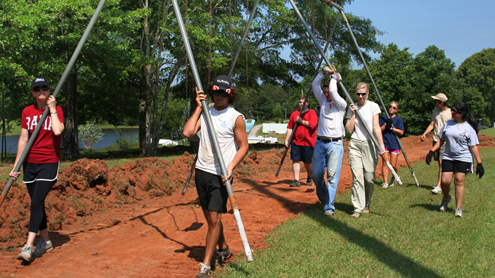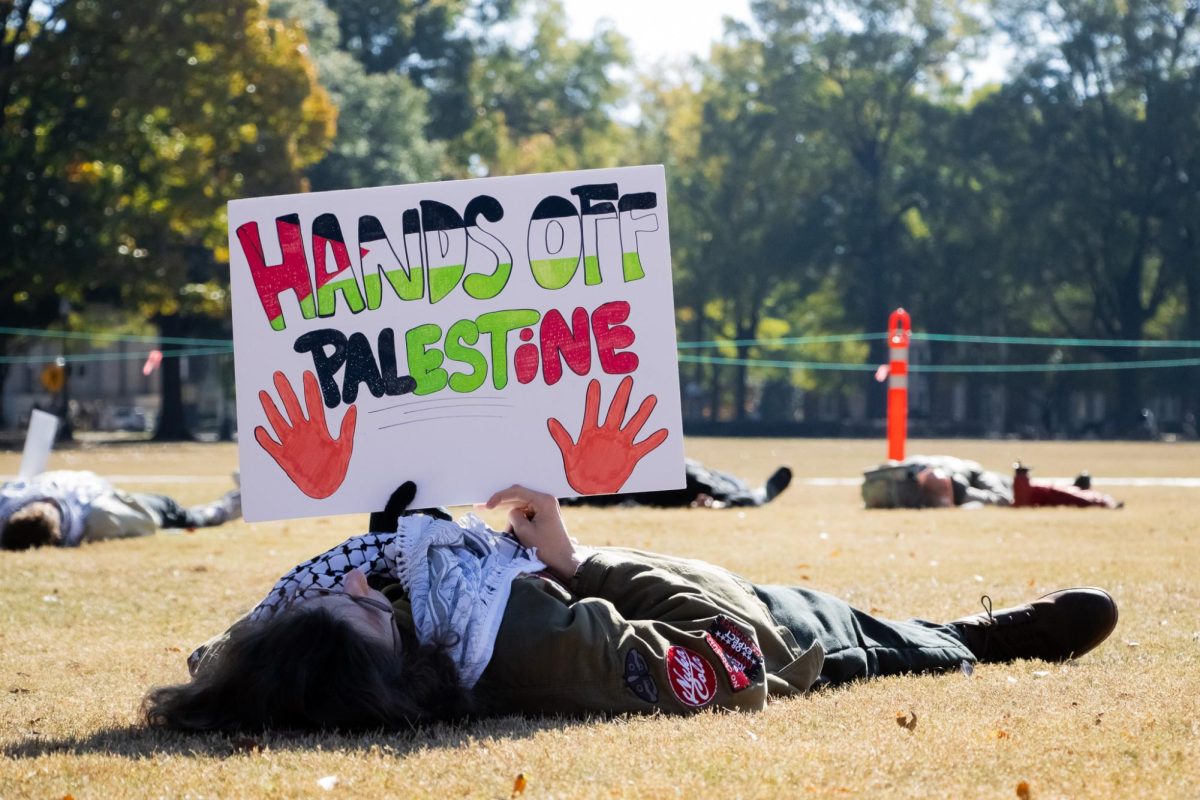For three weeks in May, about 50 freshman and sophomore University Fellows participated in the Black Belt Experience, developing community relationships and aiding an often forgotten rural town.
“[The program] aims to introduce the members of the University Fellows Experience to the necessity of forming partnerships to achieve common goals in a community,” said Gina Miller, Black Belt Experience coordinator.
By meeting with educators, chamber of commerce members and citizens of Marion, and by conducting research of the area, the group organized various projects to benefit the city.
Fourteen projects were organized, with two to seven students working on each one, Miller said. The projects, some of which are still ongoing, ranged from reading programs and arts in the local schools to providing small loans to new businesses.
During their first week of the, students strengthened their knowledge of the region by traveling to the surrounding areas, including Gee’s Bend, Cahaba, Selma and Livingston.
“Being from Birmingham, I really didn’t know small town life at all,” said Jake Appelbaum, a junior majoring in marketing.
“I think some of us were a little apprehensive,” he said. “Just small worries: ‘Maybe they won’t be fully open to our ideas because we’re outsiders,’ but [our worries] were all proved wrong within the first week of being there.”
Appelbaum, along with a few other classmates, beautified Marion’s cemetery and created its database, simplifying the process of locating specific graves. Appelbaum said the idea for the project came after talking with the people of Marion and seeing an interest in restoring the cemetery.
The group and its faculty emphasized the need to get to know the community and listen to the citizens and their needs.
“Something that we were told was that we couldn’t come in on a white horse with our own ideas. You have to be received by the community before you can change anything,” said David Bailey, a sophomore majoring in finance and entrepreneurship.
Bailey said he collaborated with a friend on a micro-finance project. The project, which was started outside of the Black Belt Experience, looks to give small business loans to individuals that do not meet loan qualifications set by banks.
“Our goal is to prove microfinance works in the South,” Bailey said. “A good example of how limited [loans are] is that we met with one lady who wants to open a thrift store. All she needs is $2,500, she’s had her business plan for three years, but can’t get a loan.”
Appelbaum emphasized that, though the Black Belt is overlooked, it is a part of Alabama with a rich culture and history.
“A big thing you always hear about the Black Belt is its stats; obesity, health, corrupt leadership,” he said. “But when you go and meet the people there, you experience the love they have for their community and each other, and that love is unparalleled to past experiences I’ve had in my life.”
Miller said one of the reasons Marion was chosen as the base for the Black Belt Experience was its proximity to campus. Being only an hour away from Tuscaloosa, students can visit to maintain the connections they made during May.
Many of the students plan to go back to Marion to sing karaoke and visit the town they so closely bonded with, Miller said.
“The vision of the Black Belt Experience is to continually build relationships with Marion citizens,” she said. “We want to be a presence in the Marion community for years to come.









